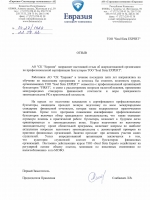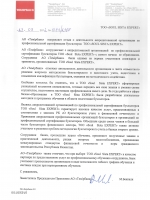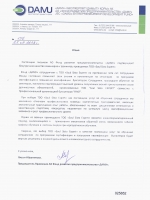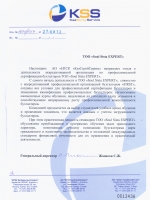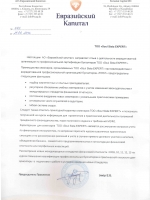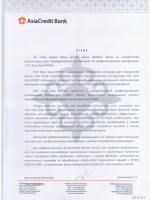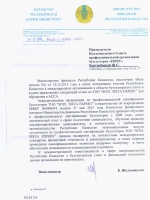The International Accounting Standards Board (the Board) has today issued IFRS 17 Insurance Contracts. This first truly international IFRS® Standard for insurance contracts will help investors and others better understand insurers’ risk exposure, profitability and financial position.
IFRS 17 replaces IFRS 4, which was brought in as an interim Standard in 2004. IFRS 4 has given companies dispensation to carry on accounting for insurance contracts using national accounting standards, resulting in a multitude of different approaches. As a consequence, it is difficult for investors to compare and contrast the financial performance of otherwise similar companies.
The Financial Stability Board noted in September 2015 the importance of the Board completing the project to replace IFRS 4 with a new Standard [1].
IFRS 17 solves the comparison problems created by IFRS 4 by requiring all insurance contracts to be accounted for in a consistent manner, benefiting both investors and insurance companies. Insurance obligations will be accounted for using current values—instead of historical cost. The information will be updated regularly, providing more useful information to users of financial statements.
Hans Hoogervorst, IASB Chairman, said:
The insurance industry plays a vital role in the global economy; high-quality information to market participants on how insurers perform financially is therefore extremely important. IFRS 17 replaces the current myriad of accounting approaches with a single approach that will provide investors and others with comparable and updated information.
Due to the range of accounting methods in use today, some countries will see more significant changes than others with the introduction of the new Standard.
IFRS 17 has an effective date of 1 January 2021 but companies can apply it earlier.
|
Hans Hoogervorst, IASB Chairman, talks about the latest developments of IFRS Standards around the world, the completion of the insurance contracts Standard and the 'Better Communication' theme at the EY-IFRS Kongress in Berlin.
|
> At its March 2016 meeting the International Accounting Standards Board will consider key issues that will set the direction for redeliberations of the proposed amendments to IFRS 4 Insurance Contracts (IFRS 4).
> Respondents had mixed views on whether there should be a fixed expiry date on the temporary exemption. Almost all users of financial statements and most regulators, and some standard-setters and auditors, support the proposed fixed expiry date (ie 2021). In particular, most users and regulators support that expiry date, regardless of the effective date of the forthcoming insurance contracts Standard.
> The staff disagrees with the argument that applying both IFRS 9 and IAS 39 in a single set of financial statements is acceptable because both standards have (for example) three measurement categories for debt instruments. The staff observes that the basis for the classification in
those standards is different as are the impairment requirements; for example, available for sale (AFS) debt is not a direct equivalent of FVOCI debt due to both the different basis for the classification and the differences in measurement (for example FVOCI debt has ECL impairment
> 13 January 2016The International Accounting Standards Board® (the Board) today issued a new accounting Standard, called IFRS 16 Leases. It replaces accounting requirements introduced more than 30 years ago that are no longer considered fit for purpose and is a major revision of the way in which companies account for leases.
> IASB® Speech Introductory comments to the European Parliament
Date: 11 January 2016 Speaker: Hans Hoogervorst, Chairman IASB
Venue: European Parliament, Brussels, Belgiu
> Michel Prada and I thank you inviting us to meet with you so early in the New Year. 2016 will be an important year in terms of accounting and it is good to have a timely exchange of opinions with you. In my introductory comments, I will touch upon the upc oming standards on Leases Standard, IFRS9, Insurance Contracts and our Conceptual Framework. Michel Prada, as Chairman of the Trustees of the IFRS Foundation, will be happy to answer any questions you May have on our governance IFRS 9 First some words on IFRS9. The introduction of an expected loss model for credit losses is the most important element of change in the Standard.
Most constituents in Europe and around the world see this new model as a big improvement. It will lead to a more timely recognition of inevitable losses and will make it much more difficult for banks to hide problem loans on their balance sheets. At the same time, it does not go overboard by requiring banks to book big up-front losses when no losses have occurred yet. This would discourage banks from making longer-term loans. IFRS9 has been assessed as contributing to financial stability in particular by the ECB and EBA, and in this it responds to the G20 requests. It has also been regarded as positive for investor protection by ESMA I am also convinced that the Standard will contribute to economic growth, because banks will be forced to clean up their loans to zombie companies quicker. This should allow credit to flow to more healthy companies with growth opportunities. For all these reasons we think IFRS 9 is consistent with European demands for a safer, more resilient financial system.
> Lease accounting Secondly, I would like to make some comments about our upcoming Leases Standard, which we will publish the day after tomorrow. Currently, listed companies around the world have around 3 trillion euros worth of leases, especially in sectors such as the airline industry, retail and shipping. Under current accounting requirements, over 85per centof these leases are labelled as operating leases and are otrecorded on the balance sheet. Clearly, the accounting today does not reflect economic reality. Despite operating leasesbeing off balance sheet, there can be no doubt that theycreate real liabilities. During the financial crisis, some major retail chains went bankrupt because they were unable to adjust quickly to the new economic reality. They had significant long-term operating lease commitments on their stores, and yet had deceptively lean balance sheets. In fact, their off balance sheet lease liabilities were up to 66 times greater than the debt reported on their balance sheet.Moreover, the current accounting for leases leads to a lack of comparability. An airline that leases most of its aircraftfleet looks very different from its competitor that bought most of its fleet, even when in reality their financing obligations may be very similar. There is no level playing field between these companies. These problems will be resolved in the upcoming Leases Standard. All leases will be recognised as assets and liabilities by lessees. The accounting will better reflect the underlying economics. This change is expected to affect roughly half of all listed companies and will not be popular with everyone. Accounting changes are often controversial and can be met with warnings of adverse economic effects and costs of system changes. The IASB has looked at all these possible risks very carefully and we will publish a detailed effect analysis on the Standard. Our conclusion is that the risks and costs of the new Leases Standard are manageable.First of all, IFRS16 will not put the leasing industry out of business. Leases will remain attractive as a flexible source of finance. It will remain appealing to companies to lease assets so that they do not bear the risks of owning them. While the cosmetic accounting benefits of leasing will disappear, the real business benefits of leasing will not change as a result of the new Standard. We do not deny there will be costs involved in updating systems to implement the new Leases Standard, but we have done our best to keep these costs to a minimum. For example, we are not 3requiring companies to recognise assets and liabilities for short term and small ticket leases. This should be especially beneficial for smaller companies. In sum, we expect the benefits of the new Leases Standard to greatly outweigh its costs. The new visibility of all leases will lead to better informed investment decisions by investors, and to more balanced lease-versus-buy decisions by management. IFRS 16 will lead to improved capital allocation, which should be beneficial for economic growth.
> Now for some words on insurance. We expect to finish our deliberations soon and to publish a new Insurance Contracts Standard aroundthe end of 2016. The importance of this Standard cannot be overestimated. Insurance is an extremely important business with substantial systemic risks. These risks are currently amplified by the current environment of persistently low interest rates. Today’s accounting Standards for the insurance Contracts are highly defective. There is no real global standard and there is a wide variety of practices around the world. Some of these standards provide information that is clearly wrong. Quite a few insurers still report at historical cost. That means they calculate their liabilities using interest rates of many years ago. Clearly, this is misleading information in a situation where interest rates are close to zero or even negative. Our new Standard will be based on current measurement and most insurers agree that this reflects economic reality much better. While there is broad consensus on this general principle, the insurance business is so complex that resolving all the accounting issues has taken us a lot of time. As a result, it is clear that the effective date of the new InsuranceContracts Standard will be later than that of IFRS9. Because both Standards are very important to the insurance industry and because they are interrelated, we understand this constitutes a problem forthe industry. We have recently exposed a possible solution to this problem, which includes the option of a deferral of IFRS 9 for pure insurance companies. For conglomerates that combine insurance with banking Activities we will make it possible to adjust Profit or Loss for the effects of IFRS9 through what we have called the overlay approach. We will evaluate the feedback we get on our proposals in the spring and expect to finalise our decisions well before the summer
> In 2016 we also expect to publish a neversion of the Conceptual Framework, which is the body of overarching principles that guides our standard- setting. Among the many important issues that we raise in the Conceptual Framework, two are of particular interest to many European stakeholders, namely Prudence and Stewardship.
> The International Accounting Standards Board (IASB) today published draft guidance to help company management determine whether information is material. The guidance is part of the IASB’s wider initiative to improve disclosures.
First, taking all things into consideration, IFRS has been a positive force in Europe. It has improved the quality and consistency of financial reporting across the European Union and has raised transparency to new levels.
Second, despite what you may sometimes read in the press, the relationship between the IASB and Europe has matured over the years and is overall constructive. There will always be difficult issues to overcome. However, the level of cooperation and mutual understanding is now vastly superior to when we first started out, and that is bene ficial for us all.
Hans Hoogervorst, IASB Chairman, commented
"Financial statements are meant to be a means of communication, and should not be viewed as a mere compliance exercise. Management needs to take a step back and consider whether they are providing the right level of information in the financial statement and whether it is useful.
The Practice Statement should help guide management’s judgement, encouraging them to remove repetitive and uninformative wording and improve the overall quality of financial statements!.
______________________________________________
The financial instruments Standard, IFRS 9 Financial Instruments, was issued in July last year and has an effective date of 1 January 2018. At that time, the IASB said it would consider potential challenges arising if IFRS 9 is implemented before the new insurance contracts Standard.
The measures confirmed today would amend IFRS 4 Insurance Contracts to give companies whose business model is to predominantly issue insurance contracts the option to defer the effective date of IFRS 9 until 2021 (the ‘deferral approach’). It would also give insurers who implement IFRS 9 the option to remove from profit or loss some of the accounting mismatches and temporary volatility that could occur before the new insurance contracts Standard is implemented (the ‘overlay approach’).
The insurance contracts Standard is currently being deliberated by the IASB and a final Standard is expected to be issued in 2016.
An Exposure Draft setting out these measures will be published later this year for public consultation. If confirmed after the public consultation, these measures will not affect companies that do not issue insurance contracts.
3) 13.11.2015 Hans Hoogervorst, Chairman of the International Accounting Standards Board (IASB), today delivered a speech in Milan to discuss 10 years of IFRS in Italy, and across the European Union.
The main topics he spoke on were:
The positive impact IFRS has had on improving the quality and consistency of financial reporting across the European Union.
The mutually beneficial relationship between the IASB and Europe.
Lessons other jurisdictions can learn from Europe's decade-long experience of IFRS.
,,, www.ifrs.org







